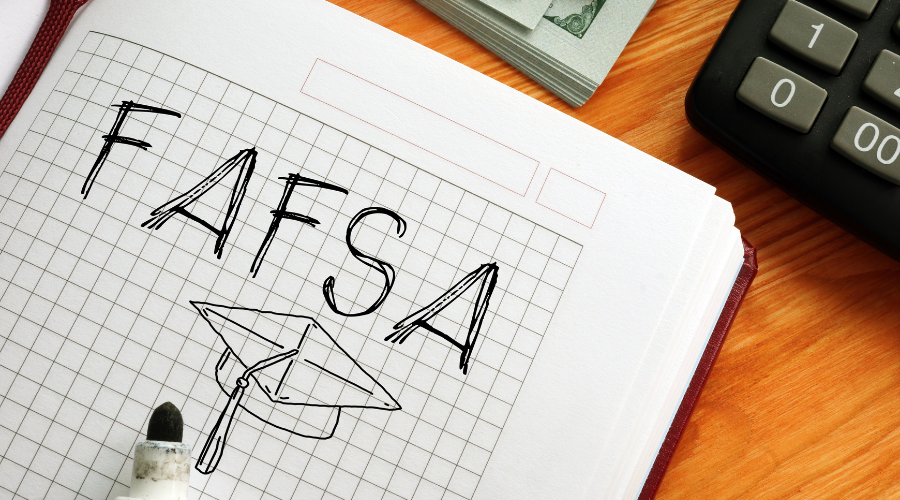
Applying for FAFSA
THE FAFSA APPLICATION AVAILABLE IS FOR 2025-2026
The FREE Application for Federal Student Aid and the Illinois Alternative Application (RISE Act) are open! Students and those contributing information to the FAFSA will need a FSA ID – this includes undocumented parents. Steps to get started:
- Ensure anyone contributing information to the FAFSA has an FSA ID or FAFSA Account
- Student logs into FAFSA and completes student portion
- Student invites contributors (e.g., parents, spouse) to log into FAFSA to complete contributor portion
- That's it! The NEIU Financial Aid Office hears that the application itself takes seven minutes to complete!
The NEIU Financial Aid Office has also heard that there are still intermittent pauses or “waiting rooms,” so please be patient, refresh and return to the application later.
Because the FAFSA will ask for two-year old income tax information, you will already have done your taxes by the time you fill out your FAFSA, and you will not need to estimate your tax information and then go back into the FAFSA later to update it. You may provide consent (by contributor) to use IRS Direct Data Exchange for automatic import your tax information into the FAFSA. Worried that the household income two years ago has substantially changed and there are special or unusual circumstances that need to be considered? Reach out to your Financial Aid Advisor regarding the ability to request professional judgment.
How to apply for aid
When applying for financial aid, it is important to understand and follow these steps in order to maximize your funding benefits. View NEIU’s Cost of Attendance to determine tuition, fees and other expenses associated with attending college.
Step 1: FAFSA
Your path to financial aid begins with filling out the Free Application for Student Financial Aid (FAFSA). It takes about seven minutes to complete online. Upon submission of the application, eligibility will be determined for federal and state assistance (grants, loans, and work-study funds).
Federal Student Aid Eligibility Requirements
You are:
- enrolled in a degree-seeking program
- a United States citizen or permanent resident (eligible non-citizen)
- maintaining Minimum Standards of Satisfactory Academic Progress
- not in default on any student loan nor owe a repayment on any grant
Estimate your Student Aid Index Here
Watch: Preparing for the Free Application for Federal Student Aid (FAFSA®) Form
or
State of Illinois Alternative Application
The Retention of Illinois Students and Equity (RISE) Act, signed into law by Governor J.B. Pritzker, provides a pathway to apply for Monetary Award Program (MAP) grant funding. This program is intended for qualifying undocumented students and for transgender students who are not eligible for federal financial aid because they did not register for selective service.
Undocumented students who have not completed a FAFSA, and who want to determine their eligibility to complete the Alternative Application, can review the information at Illinois Student Assistance Commission (ILSAC). While the Alternative Application itself includes pre-screening questions to determine if a student is eligible to complete it, students are also encouraged to consult their school counselor or financial aid office to determine whether they should complete the FAFSA or the Alternative Application.
Watch: Completing the Alternative Application for MAP Grant Assistance